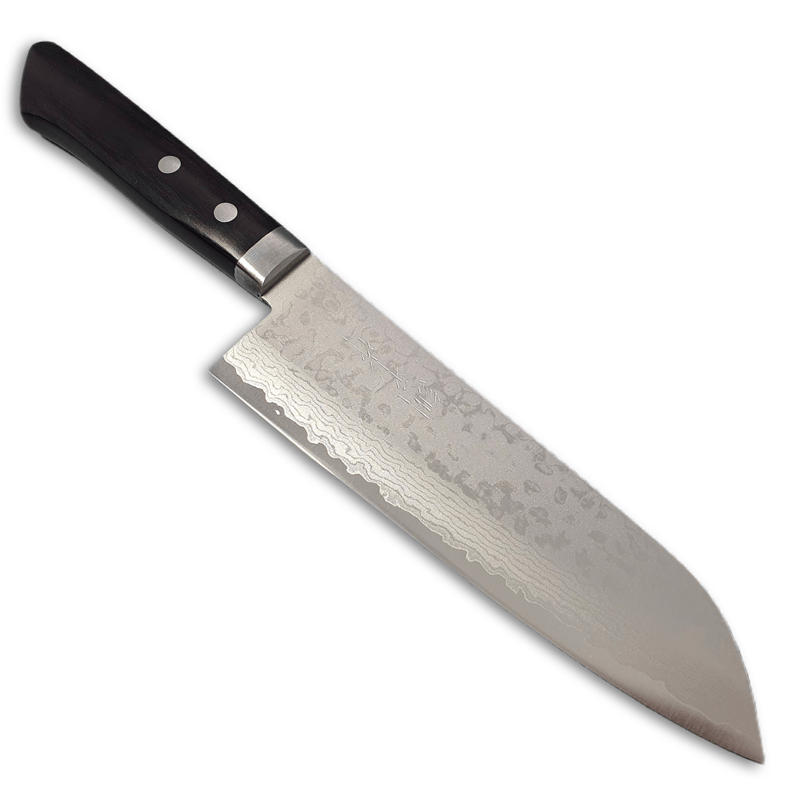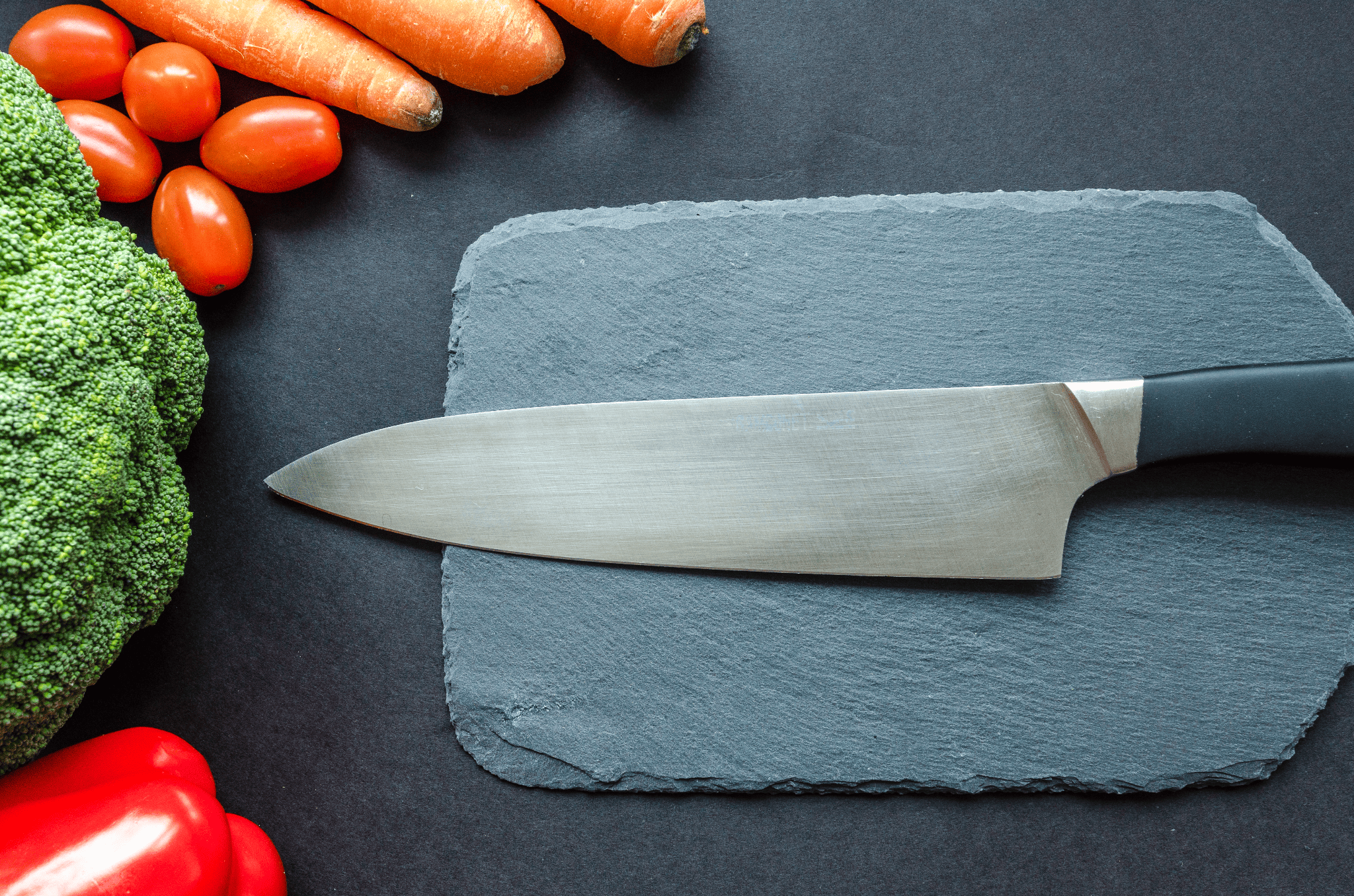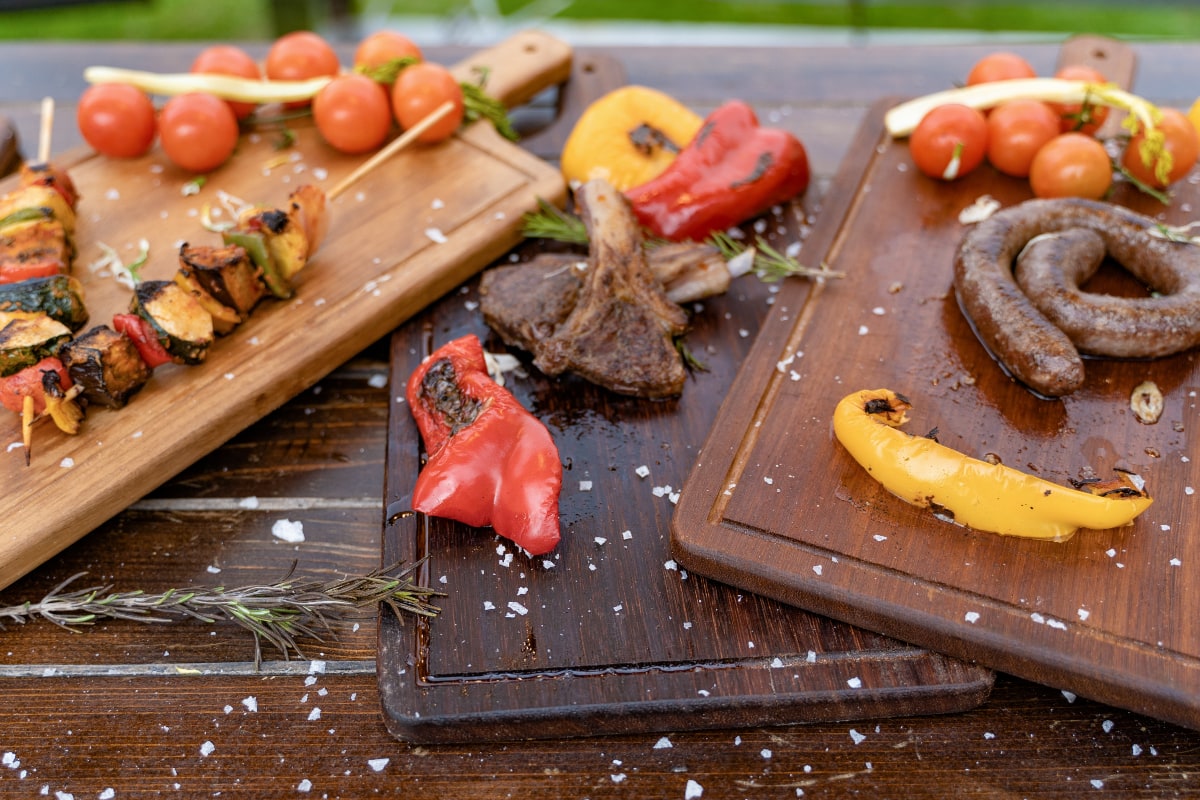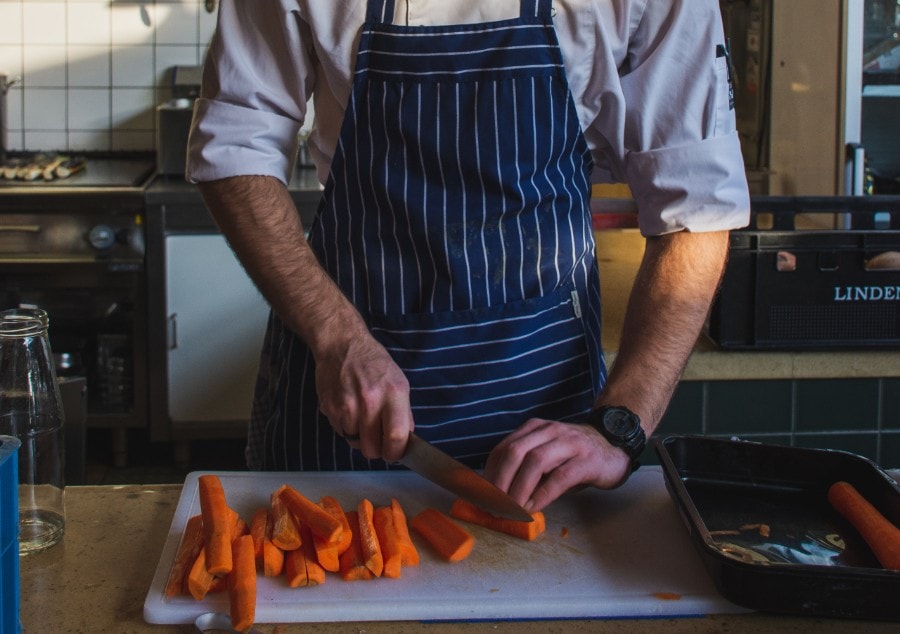Knives are a chef’s most important tool. In the hands of a skilled cook, a knife can be used to create masterpieces. But with so many options on the market, what is the best type of kitchen knife for you? This blog post will compare Damascus knives vs. stainless steel knives to help you decide which type is right for you.
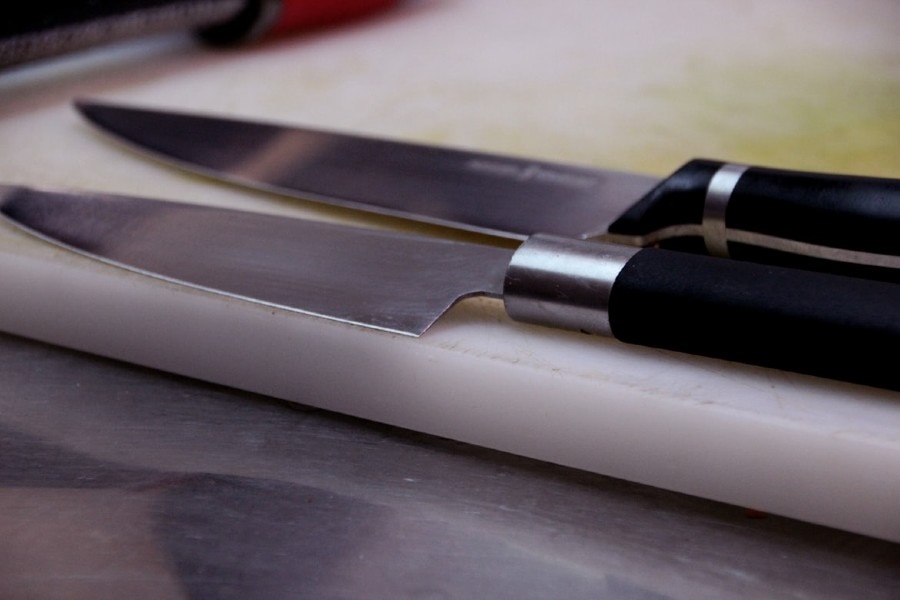
What is Stainless Steel?
Stainless steel is a metal alloy made of iron, chromium, carbon (and sometimes additional elements like nickel or molybdenum). The chromium makes the blade resistant to corrosion and has better edge retention.
Higher chromium content means better corrosion resistance, a standard grade stainless steel may have around 10% chromium content while a good quality will have 13% or more chromium content.
Before purchasing a stainless steel knife, check its steel grade first as not all steel is made equal. The difference between chromium content will determine the blade’s durability and lifespan.
The Difference between Stainless Steel and Carbon Steel
The main difference between stainless steel and carbon steel lies in the amount of carbon present in the metal. Carbon steel contains more carbon which makes it harder but also more brittle.
Due to the high amount of carbon in the metal, it is more vulnerable to rusting when exposed to moisture. Tools made from this steel, such as carbon steel knives, deteriorate quickly and must be maintained regularly.
Features of Stainless Steel
Resistant to Corrosion
Stainless steel is well known for being resistant to corrosion and rust. This is due to its high chromium content, which means blades made from this alloy will last long.
The chromium in the steel reacts in the surrounding air to create a protective layer that makes the steel resistant to corrosion.
However, if you don’t take care of your kitchen knives and clean them properly after each use, they can still rust, like any other metal.
Durable
The blades are made from this hard steel are perfect for cutting or slicing tougher materials like meat. The carbon content in these knives makes the cutting edge sharper than ordinary steel.
Multi-purpose
Knives made of this steel are perfect for various tasks in the kitchen. They can be used for slicing, chopping fruits and vegetables, and meat.
Due to its corrosion resistance properties, many homeowners prefer purchasing these kitchen knives as they are easy to maintain and clean compared to other knives.
Availability
When it comes to purchasing a knife, one of the factors to consider is the availability of the knife in stock. In this regard, stainless steel knives tend to be more readily available. This is due to the easy mass production, which results in a greater amount of stock on hand.
What is Damascus Steel?
Damascus steel is a type of alloy made up of more than one layer of steel, recognized by its beautiful wavy patterns etched in the steel. Nowadays, knives are usually produced from Damascus round bars or billets.
Historically, Ancient true Damascus steel was created from a metal called Wootz steel produced from ancient India. The steel got its name from the City of Damascus in Syria where the steel was commonly sold.
Modern Damascus steel is usually an alloy of two steel, high carbon content steel for rigidity, and softer stainless steel for its flexibility and anti-corrosion properties. It is molded into rods or bars called Damascus rods or billets before getting turned into knives or jewelry.
The unique wavy pattern of this steel is the result of the forging process of folding and hammering, which Damascus steel is produced. Knives made from this steel are often more expensive than those made from ordinary steel, due to the intricate pattern and high price of the steel.
From the materials used to craft the blade to the intricate designs, Damascus knives are a hot sell among many home cooks and professional chefs alike.
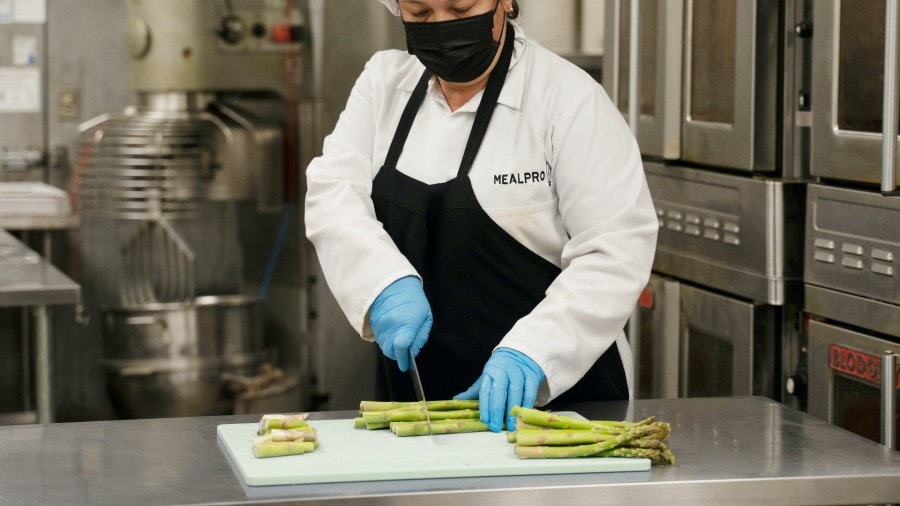
Characteristics of Damascus Steel
The unique wavy pattern of this steel is the result of the forging process of folding and hammering, and many customers ask if Damascus steel is the strongest. Here’s what it’s all about…
Wave-like patterns – The Steel is known for its unique Damascus pattern, making it stand out from other knives on the market. These patterns are created during the manufacturing process and can be easily seen on its sides.
Material– A good quality Damascus steel is usually made up of two or more kinds of steel forge welded together.
Hardness – The hardness of a good Damascus steel is usually in the range of 52-60 on the Rockwell scale, still not as hard when compared to some high carbon steel on the Mohs scale. However, many contemporary blade manufacturers now offer laminated blades with a single-steel core of higher hardness, ranging from 58 to 64 HRC.
Durability – Damascus steel is less corrosion-resistant than stainless steel due to its high carbon and low chromium content. With proper care and maintenance, Damascus steel blades can last for many years, if not decades, with regular use.
Ease of Maintenance – Since Damascus steel is less resistant to corrosion, it is essential to clean and dry the blade after each use to prevent any rusting from happening. A light coat of oil can also be applied to the Damascus blade to help keep it protected.
Is Damascus steel stronger?
Many customers ask how strong is Damascus steel, and the answer is that it depends on the type of Damascus steel used and the heat treatment. It is not necessarily stronger than other types of steel, especially modern ones.
However, laminated blades with a single-steel core of higher hardness are now a common approach in Damascus knife manufacturing. The single-steel core allows for improved edge retention, while the softer outer layers provide more resilience and help to reduce the risk of breakage. The combination of the two can result in a blade that is both strong and durable. The hardness of the single-steel core, measured on the Rockwell hardness scale (HRC), can range from 58 to 64 depending on the manufacturer and intended use of the blade.
Damascus Knives vs Stainless steel knives: Which is Better Option?
In general, Stainless steel knives are durable and easier to maintain than Damascus knives. They can withstand being dropped without chipping or breaking and do not require much care and maintenance as Damascus knives.
However, a Damascus steel knife is tougher than a stainless steel knife and can retain a sharper edge for a longer time. However, Damascus Blades will likely rust if not correctly taken care of.
If you are looking for a knife cheaper and that is going to be won’t rust that easily then a stainless steel knife is the better option.
If you are looking for a knife with a beautifully intricate design that is still tough and can hold an edge for a longer time, then a Damascus knife is better. Some online stores specialize in selling Damascus knives and offer a wide range of styles to choose from.
Conclusion
In conclusion, both knives have their own unique advantages and disadvantages. It ultimately comes down to what you are looking for in a knife.
If durability and ease of maintenance are what you seek, then a stainless steel knife is the better choice. If an amazing look and a longer-lasting edge are your priority, then a Damascus knife is the best option available.
